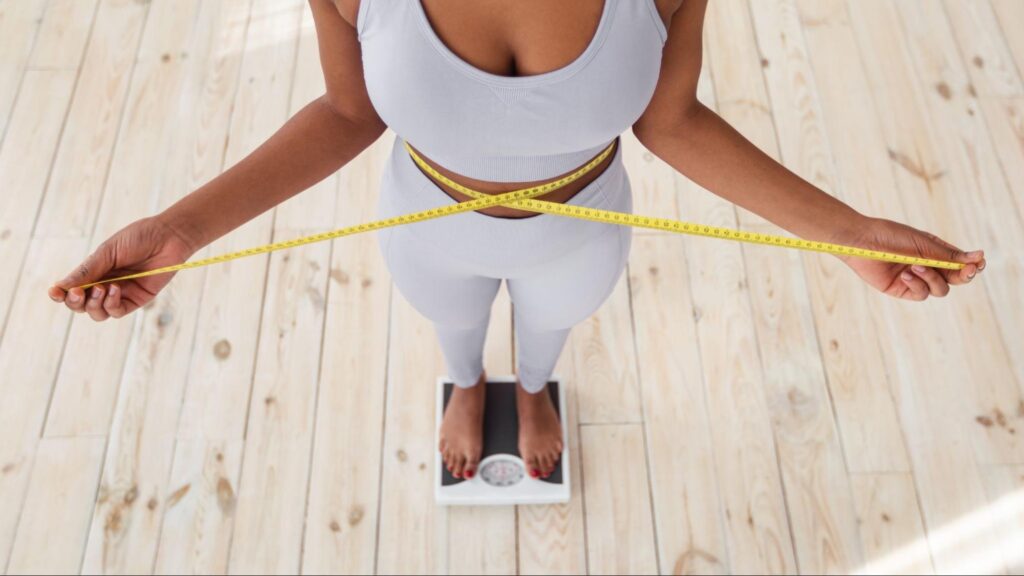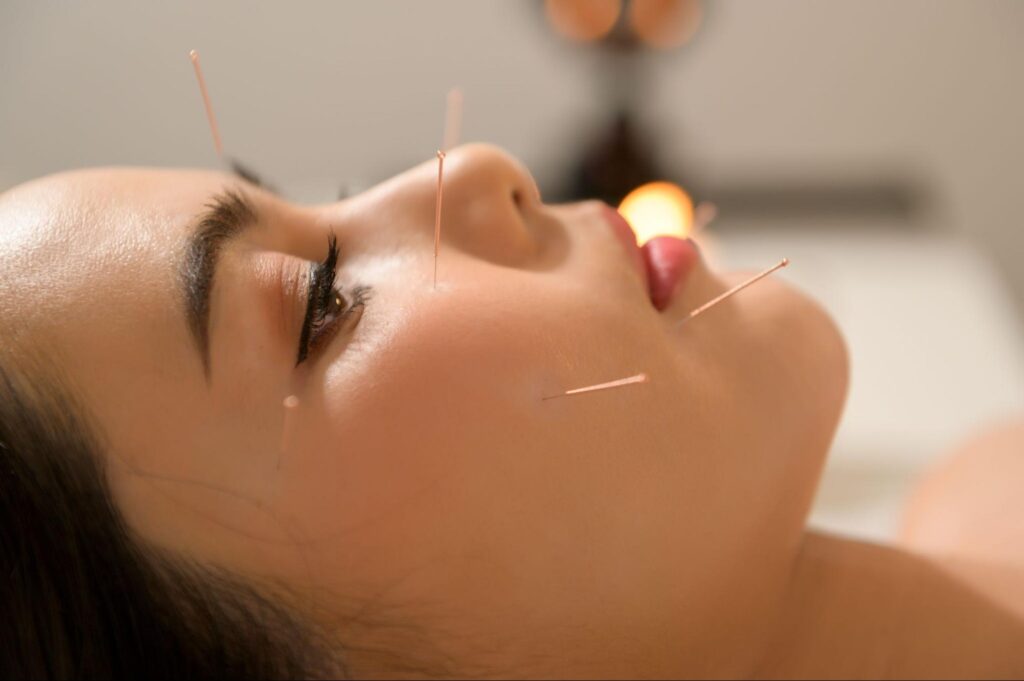
In today’s fast-paced world, achieving weight loss goals is often an uphill battle. Many people are turning to alternative therapies, like acupuncture, to complement their weight loss efforts. The growing interest in acupuncture for weight loss stems from its holistic approach to health and wellness. This article explores whether acupuncture can genuinely aid in weight loss and how it fits into a broader weight management plan. By understanding acupuncture’s role, you can make an informed decision about incorporating it into your journey.
Understanding Acupuncture and Its Principles
Acupuncture is an ancient practice rooted in Traditional Chinese Medicine (TCM) that has gained recognition globally. It involves inserting thin needles into specific body points to balance the body’s energy, or “Qi.” The belief is that when Qi is balanced, the body can function at its best, leading to improved health. This practice is widely believed to help with various health issues, including chronic pain, stress, and, potentially, weight loss. Understanding how acupuncture works is the first step in determining if it could benefit your weight loss efforts.
How Acupuncture Works
Acupuncture is grounded in the concept that the body is a network of energy channels known as meridians. When these meridians are disrupted, it can lead to illness or imbalances. Acupuncture aims to restore balance by targeting specific points along these meridians, which are linked to different organs and functions in the body. By stimulating these points, acupuncture enhances energy flow, promoting healing and overall well-being. This fundamental understanding is crucial when considering acupuncture as a weight loss tool.
The Health Impacts of Acupuncture
Many studies and anecdotal reports suggest that acupuncture can influence various physiological processes, such as reducing inflammation, improving digestion, and regulating hormones. These effects indirectly support weight loss by addressing the underlying issues contributing to weight gain. For instance, by reducing inflammation and improving digestion, acupuncture could help your body metabolize food more efficiently, leading to better weight management. However, it’s important to note that acupuncture is a supportive therapy rather than a primary weight loss strategy.
Acupuncture’s principles are deeply rooted in balancing the body’s energy to promote health. While it offers various benefits that could support weight loss, it is essential to approach it with realistic expectations.
The Connection Between Acupuncture and Weight Loss
Although the idea that acupuncture can aid in weight loss may seem surprising, there’s a scientific basis behind it. Acupuncture can influence the hormones that control appetite and metabolism, potentially reducing cravings and boosting energy use. By targeting specific points related to digestion and metabolism, acupuncture might help regulate the body’s processes that contribute to weight gain. This connection makes acupuncture an intriguing option for those looking to enhance their weight loss efforts.
Hormonal Influence on Weight Loss
Hormonal balance is critical in weight management, and acupuncture may help regulate hormones like insulin, ghrelin, and leptin. These hormones control hunger and fat storage, which can significantly impact your ability to lose weight. By stimulating specific points, acupuncture might help to normalize these hormones, reducing the likelihood of overeating and promoting more efficient fat-burning. This hormonal influence is one reason acupuncture might be effective for some people in managing their weight.
Stress Reduction and Emotional Eating
Another significant factor in weight loss is stress, which can lead to emotional eating and other unhealthy behaviors. Acupuncture reduces stress by promoting relaxation and balancing the nervous system. When stress levels are lower, people are less likely to turn to food for comfort, which can help maintain a healthy diet. Thus, by addressing stress, acupuncture indirectly supports weight loss efforts by assisting people to maintain better control over their eating habits.
While acupuncture isn’t a magic bullet for weight loss, it may support your efforts by addressing underlying issues that hinder progress. However, to achieve the best results, acupuncture should be used in conjunction with other weight loss strategies, such as diet and exercise.
Types of Acupuncture for Weight Loss
Acupuncture targets specific body areas, and each method has varying effects on weight loss. Understanding these other types can help you choose the right approach for your weight loss goals.
Body Acupuncture
Body acupuncture targets points on the body to balance energy and stimulate weight loss-related processes. Practitioners typically focus on points associated with the digestive system, such as the stomach and spleen, to improve digestion and metabolism. By enhancing these functions, body acupuncture helps your body process food more efficiently and reduce fat accumulation. This method is widely used because of its holistic approach to balancing the body’s overall energy.
Ear Acupuncture
This technique focuses on the ear, which is thought to correspond to various body parts and can influence appetite and digestion. Ear acupuncture involves placing needles in specific points on the ear that can control cravings and help with emotional eating. By targeting these points, ear acupuncture may help reduce the urge to overeat and promote healthier eating habits. This type of acupuncture is prevalent for its convenience and ability to be combined with other forms of therapy.
Electroacupuncture
Electroacupuncture offers a modern twist by using electrical stimulation to enhance the effects of traditional acupuncture. This method passes a small electric current between acupuncture needles to stimulate the points more intensely. This technique is believed to be particularly effective for weight loss because it can intensify metabolism and fat-burning effects. Electroacupuncture is often used when a more potent stimulus is needed to achieve the desired therapeutic effect.
The Benefits of Acupuncture for Weight Loss
Acupuncture’s holistic approach addresses various aspects of your health that can influence weight, such as digestion, mood, and energy levels. These benefits contribute to a more comprehensive and sustainable weight loss process.
Improved Digestion
Acupuncture may help regulate digestive function, leading to more efficient nutrient absorption and metabolism. By targeting points related to the stomach and intestines, acupuncture can support the digestive process, making it easier for your body to break down food and convert it into energy. Improved digestion can also reduce bloating and discomfort, often associated with poor eating habits. As a result, better digestion can contribute to healthier weight management.
Enhanced Mood
By boosting serotonin and other neurotransmitters, acupuncture can improve mood, reducing the likelihood of stress eating. Emotional eating is a common obstacle to weight loss, as people often turn to food for comfort when feeling down. Acupuncture’s ability to enhance mood can help break this cycle, making it easier to stick to a healthy diet. A more stable mood makes you less likely to reach for unhealthy snacks during stress or sadness.
Increased Energy Levels
Regular acupuncture sessions increase energy, helping you stay active and burn more calories. Many people struggle with low energy levels, making regular exercise routines challenging. By stimulating points linked to energy production, acupuncture can help you feel more invigorated and motivated to stay active. Increased energy levels are crucial for sustaining physical activity, a vital component of any successful weight loss plan.
What to Expect During an Acupuncture Session
Understanding the process can help you feel more comfortable and maximize your acupuncture sessions. Knowing what to expect can enhance your experience and help you achieve your weight loss objectives, whether it’s your first time or a seasoned acupuncture client.
Consultation
Your first session will typically start with a consultation to discuss your health goals and any concerns. The acupuncturist will ask about your medical history, diet, lifestyle, and weight loss objectives to develop a tailored treatment plan. This consultation helps the practitioner identify the most effective points to target during sessions. Being open and honest during this consultation will ensure that the treatment will be as effective as possible.
The Procedure
The practitioner inserts needles at specific points based on your individual needs. You may sense a slight prick, but it generally causes little discomfort. The needles used in acupuncture are skinny and much finer than those used for injections, which minimizes pain. Once the needles are in place, you’ll typically rest for about 20-30 minutes while they work their magic. The experience is often relaxing, and many people fall asleep during sessions.
Post-Session
After the session, you might feel relaxed or energized, and you’ll discuss any observations or changes with your practitioner. Some people notice immediate effects, such as reduced appetite or increased energy, while for others, the benefits build over time with regular sessions. You must communicate with your acupuncturist about your feelings; this feedback can help fine-tune your treatment plan. Regular follow-up sessions are recommended to maintain the benefits and support your weight loss goals.
Combining Acupuncture With Other Weight Loss Strategies
Acupuncture alone is unlikely to result in significant weight loss; it’s most effective when part of a comprehensive approach. To maximize the benefits of acupuncture, it’s essential to integrate it with healthy eating, regular exercise, and mindfulness practices.
Healthy Diet
Pairing acupuncture with a balanced diet ensures your body gets the nutrients it needs to function optimally. Acupuncture can help improve digestion and reduce cravings, but without a nutritious diet, these benefits may not be enough to promote weight loss. Focus on a diet rich in whole foods, such as vegetables, fruits, lean proteins, and whole grains, to complement the effects of acupuncture. This combination can help you achieve better results than acupuncture or dieting alone.
Regular Exercise
Physical activity complements the effects of acupuncture by boosting metabolism and supporting weight loss. Exercise helps burn calories, build muscle, and improve overall health, all essential for weight loss. Acupuncture can enhance your energy levels and reduce pain, making a consistent exercise routine more manageable. Exercise and acupuncture can create a powerful synergy that accelerates your weight loss progress.
Mindfulness Practices
Incorporating mindfulness, such as meditation or yoga, can enhance the stress-reducing benefits of acupuncture. Stress management is crucial for weight loss, as stress can lead to overeating and poor food choices. Mindfulness practices can help you focus on your goals, reduce emotional eating, and improve your overall well-being. When combined with acupuncture, mindfulness can provide a holistic approach to weight loss that nurtures both your body and mind.
Potential Drawbacks and Considerations
Despite its potential benefits, acupuncture has its drawbacks. Like any treatment, acupuncture may not suit everyone, and its effectiveness can vary. Here are some factors to consider before starting acupuncture for weight loss.
Limited Scientific Evidence
While some studies suggest acupuncture may help with weight loss, more extensive research is needed to confirm its efficacy. The evidence supporting acupuncture for weight loss is mixed, with some studies showing positive results and others finding no significant impact. This lack of conclusive evidence means that acupuncture should be considered a complementary therapy rather than a primary treatment for weight loss. If you decide to try acupuncture, it’s essential to have realistic expectations and not rely on it as your sole strategy.
Individual Variability
The effectiveness of acupuncture can vary widely from person to person, depending on factors like overall health and the practitioner’s skill. Some people may experience significant benefits from acupuncture, while others may see little to no effect. This variability can make it challenging to predict how well acupuncture will work for you. To improve your chances of success, choose a qualified and experienced acupuncturist who can tailor the treatment to your specific needs.
Cost and Accessibility
Regular acupuncture sessions can be expensive and may not be accessible to everyone, which could limit its use as a weight loss tool. The cost of acupuncture can increase, especially since multiple sessions are usually needed to see results. Additionally, not all areas have easy access to qualified acupuncturists, making it difficult for some people to receive regular treatments. Before starting acupuncture, consider whether it fits within your budget and whether you can commit to the recommended treatment schedule.
The Power of Acupuncture for Weight Loss
Acupuncture offers a unique weight-loss approach that aligns with a holistic view of health. While it’s not a standalone solution, it can be a valuable part of a broader weight loss strategy combined with healthy eating, regular exercise, and mindfulness practices. Whether you choose acupuncture as a complementary therapy or a primary plan, integrating it with a balanced lifestyle is vital. By taking an informed approach, you can empower yourself to explore all avenues for achieving your weight loss goals.
Continue your wellness journey with expert guidance on our 간송한의원123 Acupuncture & Herbs Medicare blog.




